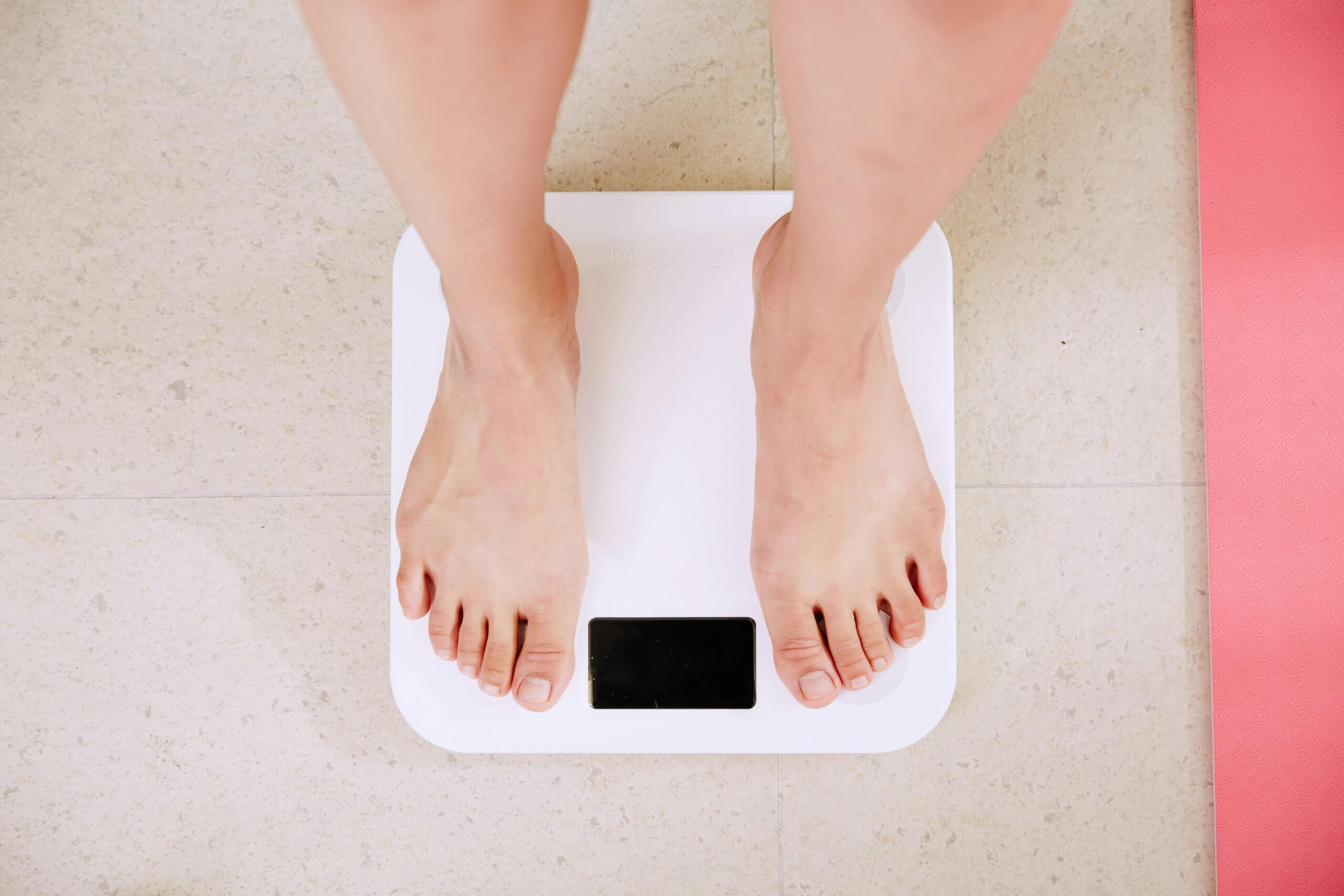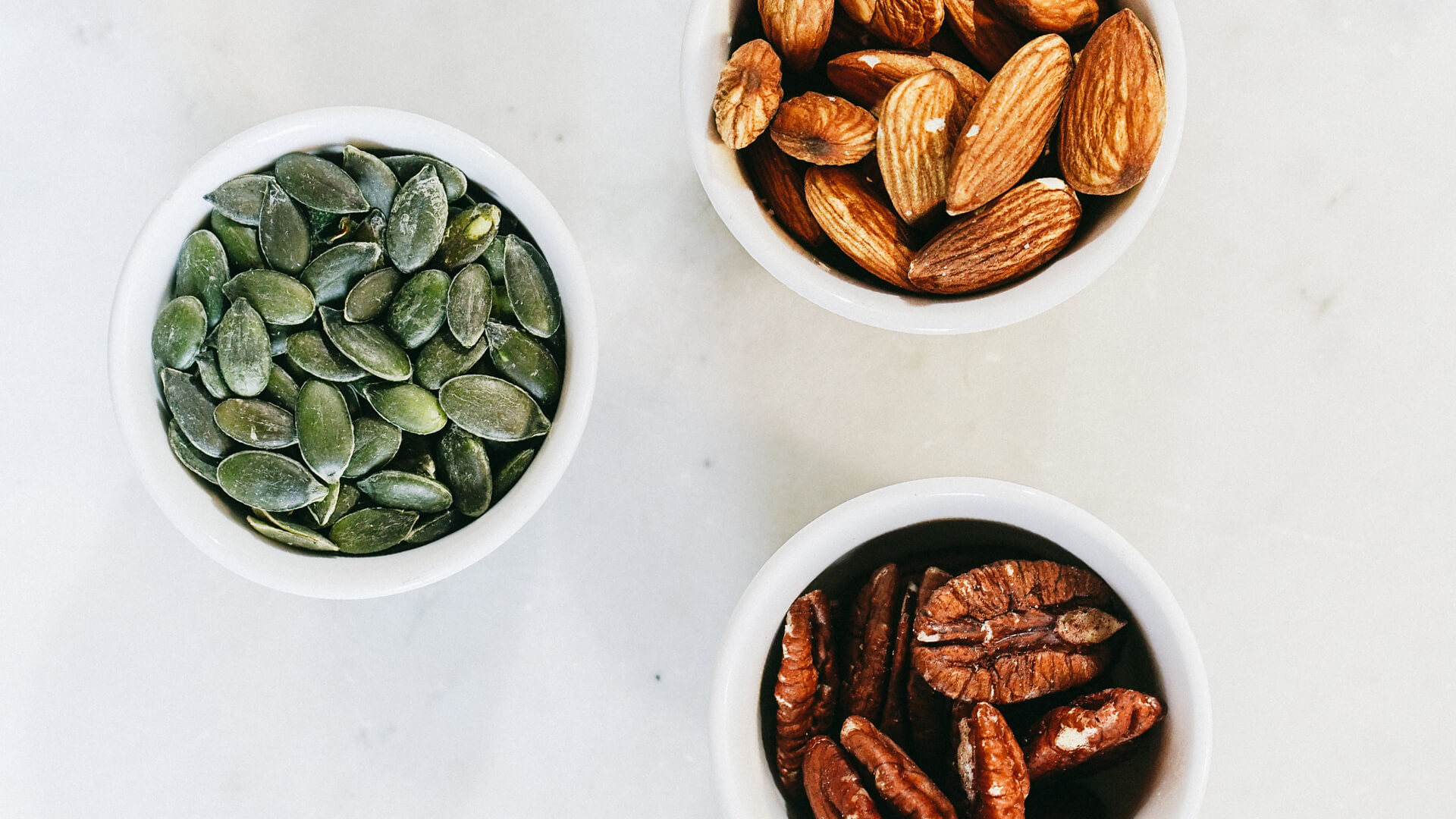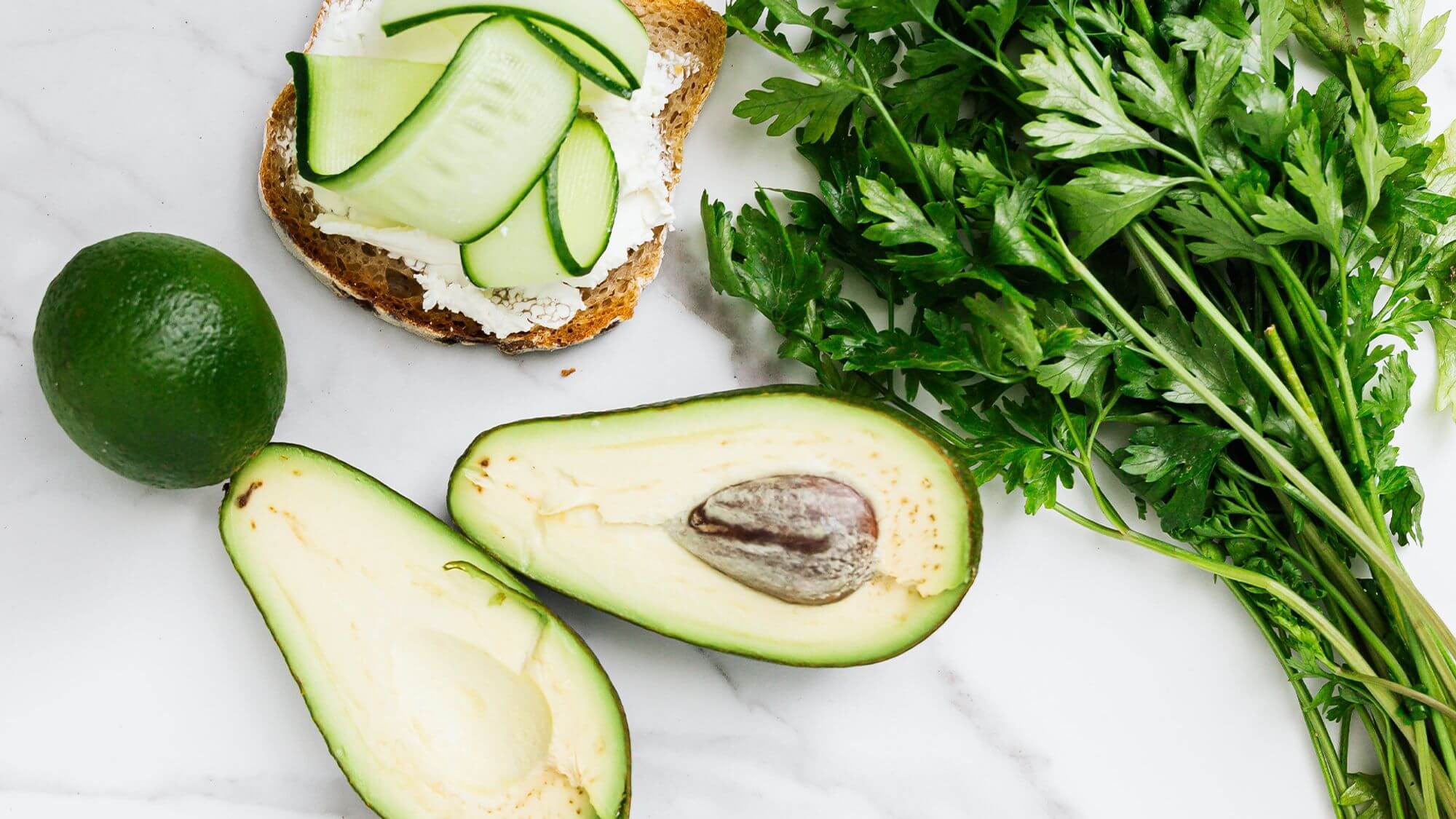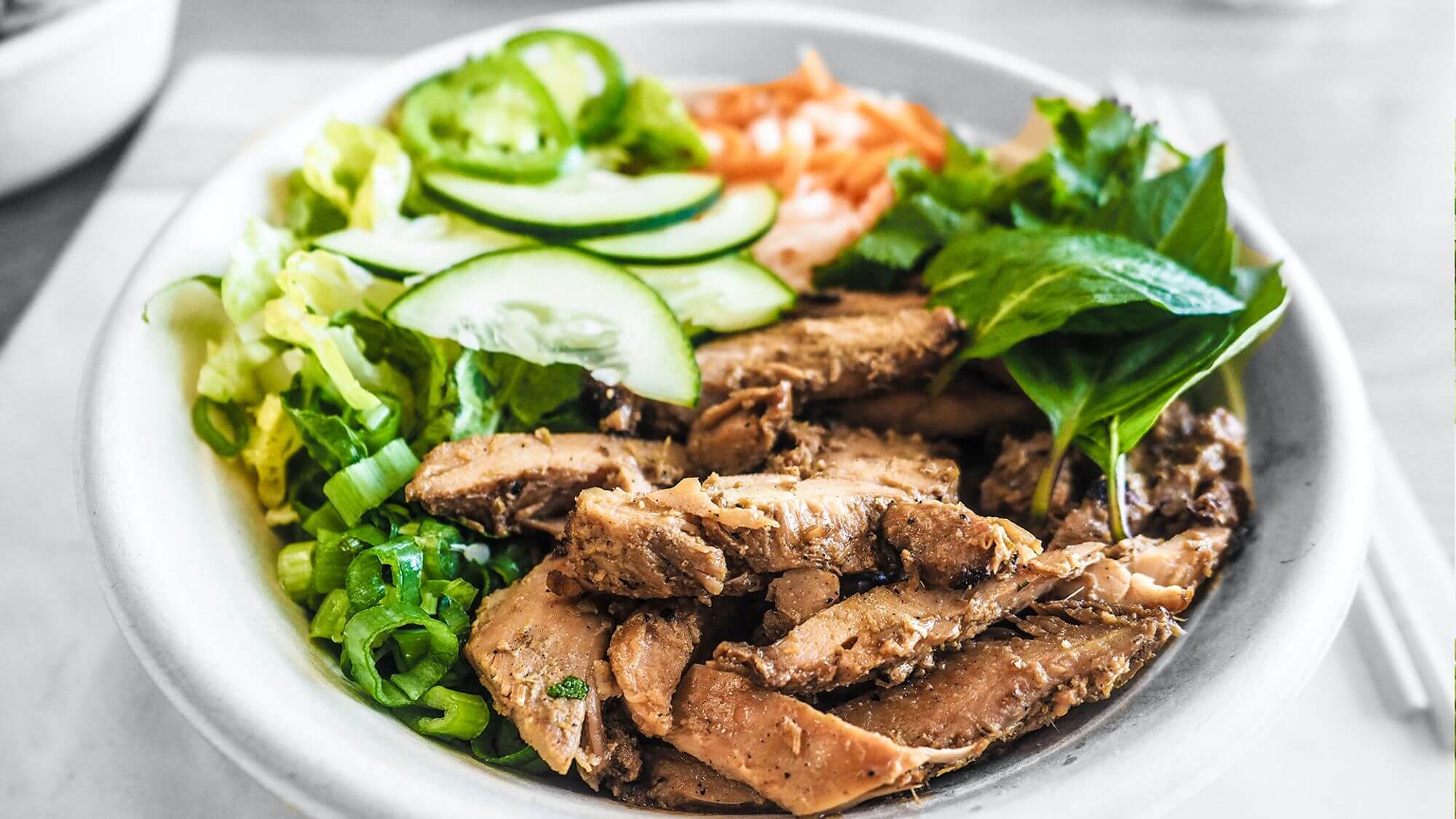Are you struggling to lose weight despite sticking to a calorie deficit? You’re not alone, thousands of people search for answers each month on why the scale won’t budge, even when they’re eating less. A calorie deficit is often touted as the key to weight loss, but hidden calories, metabolism quirks and lifestyle factors can all play a role in slowing your progress.
In the article below, we’ve broken down 12 reasons why you’re not losing weight in a calorie deficit and how to overcome them with tips to help you get those much-desired results.
What is a calorie deficit?
A calorie deficit happens when you consume fewer calories than you burn in a day. Calories are the energy you get from food, fueling everything from breathing to exercise. When you're in a calorie deficit, your body draws on stored energy (primarily fat) to make up the difference, which can lead to weight loss over time.
But creating a calorie deficit isn't a one-size-fits-all approach. Many experts suggest a 500-calorie daily deficit as a safe starting point, aiming for about 1 pound of weight loss per week.
However, factors like age, how active you are, health conditions and metabolic rate—the speed at which your body burns calories at rest—can all affect your personal calorie needs.
To reach a calorie deficit, you could either eat fewer calories, increase physical activity or do a combination of both. For example, if your calories are 2,000 per day, reducing to 1,500 calories or boosting physical activity by 500 calories would create a deficit.
Keep in mind that a gradual, manageable deficit is often more sustainable and avoids the adverse effects of extreme calorie cutting, such as fatigue, irritability, and even headaches, constipation and nausea.
12 reasons for not losing weight in a calorie deficit
1. Hidden calories
Sometimes, calories sneak in through sauces, drinks and even healthy snacks, making it easy to underestimate your intake. These “hidden” calories add up, reducing the effectiveness of your calorie deficit.
Studies have found that people often underestimate their daily calorie intake, especially with high-calorie foods like sauces and oils, by around 20% to 50% on average.
To stay on track, use a food diary or app to record everything, including condiments and beverages, so that no calorie goes unnoticed.
2. Miscalculating portion sizes
Portion sizes can be deceiving, and even a tiny miscalculation can add hundreds of calories. Research shows that people tend to underestimate portion sizes—which is even more likely when you're hungry or in a rush, leading to eating more than planned.
Regain your power and combat this by using measuring tools or a digital scale to keep your portions accurate, or consider ready-to-eat meal prep services to help you stick to your calorie goals more effectively.
3. Metabolism changes
Metabolism isn’t static; it can slow down over time, especially with prolonged calorie deficits.
Studies back this up, showing that as you lose weight, your resting metabolic rate (RMR) can also decrease—which we don’t want. To support metabolism, try incorporating strength training to build muscle, as muscle tissue burns more calories than fat, even at rest.
4. Stress
As stress levels rise, so does the stress hormone cortisol, which can contribute to weight gain, especially around the abdomen.
High cortisol levels increase cravings for high-fat, high-sugar foods, like cakes, chocolate and chips, making it harder to maintain a calorie deficit. Practising stress management techniques, such as deep breathing or yoga, can help control cortisol levels and support weight loss.
Over 25% of customers recently surveyed (1684 respondents) have said that their stress levels have decreased since using a ready-to-eat meal prep service.
5. Hormonal imbalances
Hormonal issues, like thyroid dysfunction or insulin resistance, can impact weight loss, making it harder to lose pounds despite a calorie deficit.
Conditions such as hypothyroidism slow down metabolism, reducing calorie burn. If you have or suspect that one of these conditions may be blocking your progress, book an appointment with your healthcare provider. They’ll be able to test and manage any hormonal issues that you may be dealing with more effectively.
6. Poor sleep
If you’re skimping on sleep, it could be slowing your weight loss progress, with research finding that poor sleep disrupts hunger-regulating hormones like leptin and ghrelin. The result? Increased cravings and overeating the next day.
In fact, participants who slept 5.5 hours per night experienced more fat retention and increased cravings compared to those who slept 8.5 hours. So the next time you’re tempted by a late-night, think again. Prioritising 7-8 hours of quality sleep can make a surprising difference in controlling your appetite and, consequently, weight loss.
7. Lack of muscle mass
Muscle burns more calories even when you’re at rest, so if your muscle mass is on the low side, losing weight can feel like an uphill battle. But here’s the good news: strength training is your metabolism’s best friend.
Just a couple of weekly weight sessions at the gym can work wonders, helping you build lean muscle and giving your resting metabolic rate a serious boost!
8. Overeating after workouts
Feeling ravenous after a workout? It’s common—after all, you’ve just burned up loads of energy. Unfortunately, it can also lead to unintentional overeating, which might undo all your hard work. Not to mention that it’s easy to overestimate the amount of calories burned while exercising.
Avoid this by having a balanced post-workout snack, and pay attention to portion sizes when it comes to your main meals to keep you on track.
9. Underestimating liquid calories
It’s easy to overlook the calories in drinks like lattes, smoothies, alcoholic beverages or even juices. However, those sneaky liquid calories can add up quickly and tip you over your daily limit, so make sure to include drinks when tracking your calories and choose lower-calorie beverages to keep you within your calorie goals.
10. Exercise mismanagement
Like most things, not all workouts are created equal, and focusing too much on cardio without strength training can actually limit your progress.
Seek the advice of a personal trainer or create a more balanced routine by incorporating strength training with cardio to enhance your results and support long-term weight management.
11. Medication
Certain medications, like antidepressants, antipsychotics and hormonal therapies, can all play their part and, frustratingly, make weight loss even more challenging. From slowing down your metabolism to increasing your appetite, these common side effects can turn your weight loss journey into an uphill battle.
If you suspect your medication is affecting your weight loss, talk to your local GP. They'll be able to advise you and help identify possible solutions, including making adjustments when it comes to doses or finding alternative medications.
12. Water retention
Water retention can mask your progress on the scale, even if fat loss is happening and your body composition is changing. According to research, high sodium intake, stress and hormonal changes can all contribute to water retention, creating the illusion of stalled weight loss.
Believe it or not, drinking water can actually help your body hold onto less water. When your kidneys are working at their best, they're better able to flush out extra sodium and water, reducing water retention. So stay hydrated and drink 6-8 glasses of water daily to see your results and hard work in all its glory.
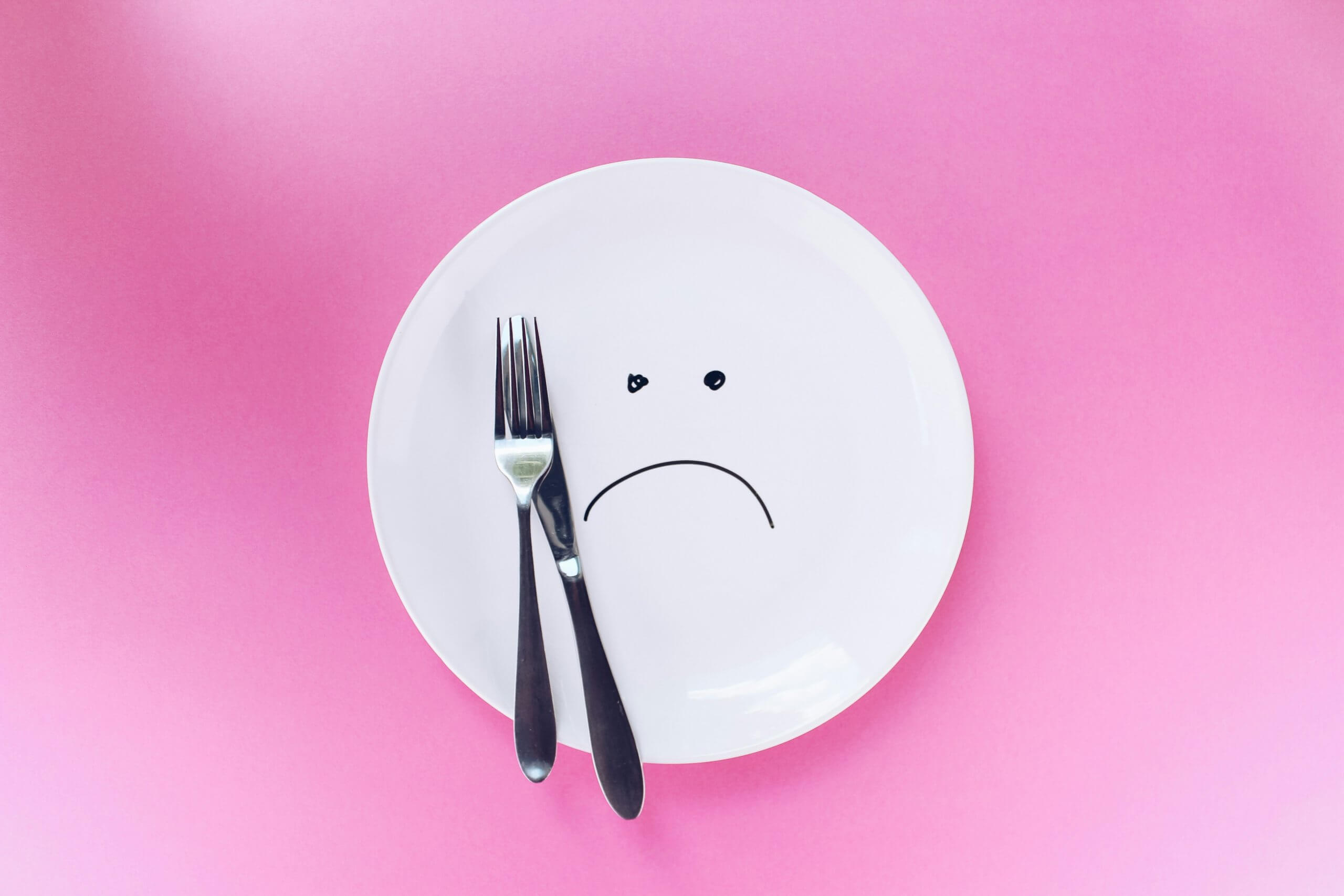
How to fix your calorie deficit issues
Hitting a weight loss plateau despite your calorie deficit is incredibly frustrating, but a few adjustments here and there can go a long way to making a big difference.
Track food accurately
Remember, even small portions or "hidden" ingredients can add up.Studies show that keeping food records via a food diary or tracking app results in more significant weight loss and help keep calorie intake in check.
Frive's balanced, portion-controlled meals make it even easier, as everything is already pre-measured, saving you from timely guesswork.
Reassess your calorie needs
As you lose weight, your body needs fewer calories. That's because, as weight decreases, the body can become more efficient with its energy use, a process that's also known as adaptive thermogenesis.
As a result, it might be time to recalculate your daily calorie intake as you lose weight to maintain a calorie deficit for continued weight loss.
Optimise your workouts
Balance cardio with strength training to boost your metabolic rate, preserve muscle mass and keep your metabolism active even when you're at rest. So, instead of your usual cardio session, why not try alternating with some weight sessions to maximise your results?
Prioritise sleep
Poor sleep can slow your metabolism and increase cravings for high-calorie foods. A solid 7-8 hours of sleep per night has been shown to regulate hunger hormones, making it easier to reach your goals.
Manage your stress levels
While stress can never be fully eliminated and is an undeniable part of everyday life, chronic stress raises cortisol levels.
Elevated stress levels lead to weight gain around the belly, increased cravings and a host of other unwanted health issues. Practising mindfulness techniques, like meditation, yoga or simple breathing exercises, can help keep cortisol in check and support weight loss.
Order pre-portioned, balanced meals
Managing a calorie deficit can be challenging when you're constantly planning, cooking and measuring food. With Frive's portion-controlled, chef-prepared meals, keeping track of calories becomes effortless.
In fact, Frive's meal plans have helped countless customers maintain their calorie goals. One Frive customer shared:
"So tasty and filling. Leaning down without starving! I train twice a day and have a busy job, so not having to worry about cooking is so incredibly helpful."
Julianna, another happy customer, said:
"Frive has been a life changer! The meals are so much better than I anticipated, and the deliveries are on point. The portions are small, but they're meant to be, especially if you're on a calorie-deficit diet."
Frive's meal plans make eating well and staying full easy, helping you stay on target without the hassle of meal prep. Feeling inspired? Check out how one customer lost a remarkable 30 kg, thanks to Frive.
How do you know if your deficit is working?
Progress isn’t always about the scale—it’s often the small victories that count. Signs like shrinking body measurements, boosted energy levels, and a better overall mood can all indicate that your calorie deficit is paying off.
Pay attention to how your clothes fit, how energetic you feel and your general outlook. These small yet powerful shifts indicate that your body is responding positively to the changes you’re making.
Stay on track with Frive
Sticking to a calorie deficit isn’t always as straightforward as it sounds, but understanding the common hurdles, like hidden calories, metabolism shifts and lifestyle factors, can make all the difference.
With careful tracking, tweaks to your routine and a bit of good old-fashioned patience, reaching your goals becomes much more achievable. Progress can take time, but small wins like better energy, improved mood, and a change in the fit of your clothes are all signs you’re on the right path.
Frive’s meal plans make achieving your calorie goals easier than ever. With portioned, fresh, ultra-process-free, chef-prepared meals, you can maintain your calorie deficit effortlessly while enjoying delicious meals. It’s no wonder that 97% of customers have noticed the benefits of switching to Frive in just their first week of using the service.
Hit your weight loss goals with Frive’s meal plans and join countless others who’ve transformed their approach to healthy eating with restaurant-quality meals delivered right to your door.
Try Frive at a discounted rate today!
FAQs
Why am I not losing weight on 1500 calories a day?
If you're not losing weight on 1500 calories a day, factors like hidden calories, metabolism changes and activity levels could affect your results. It's also possible that 1500 calories is insufficient for your body and unique needs. Reassessing your calorie needs or tracking your intake more closely could help identify the issue and put you back on track.
How do I lose weight if my calorie deficit doesn't work?
If your calorie deficit isn't resulting in weight loss, try adjusting your activity levels, tracking food more accurately or recalculating your calorie needs. Improving sleep and managing stress can also boost weight loss results, whilst consulting with a healthcare provider can help rule out any underlying health conditions.
